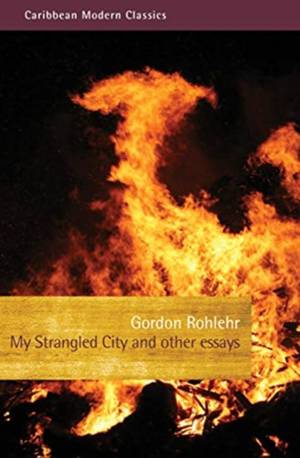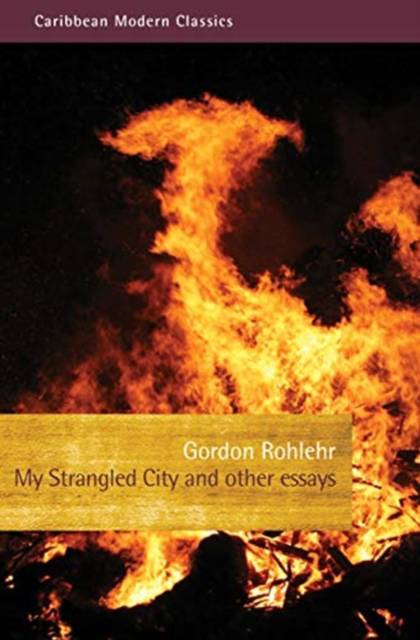
- Retrait gratuit dans votre magasin Club
- 7.000.000 titres dans notre catalogue
- Payer en toute sécurité
- Toujours un magasin près de chez vous
- Retrait gratuit dans votre magasin Club
- 7.000.000 titres dans notre catalogue
- Payer en toute sécurité
- Toujours un magasin près de chez vous
27,95 €
+ 55 points
Description
Gordon Rohlehr's critical work is outstanding in the balance it achieves between its particularity and its breadth--from the detailed unpacking of a poem's inner workings, to locating Caribbean writing in the sweep of political and cultural history--and the equal respect he pays to literary and to popular cultural forms. Indeed, along with Kamau Brathwaite, Sylvia Wynter and Kenneth Ramchand, no critic has done more to establish the subject of Caribbean writing and its distinctive aesthetics.These essays, written between 1969 to 1986, first published in radical campaigning newspapers such as Tapia and Moko, and first collected in 1992, were the work of a young academic who was both changing the university curriculum, and deeply engaged with the less privileged world outside the campus. Rohlehr catches Caribbean writing at the point when it leaves behind its nationalist hopes and begins to challenge the complex realities of independence. My Strangled City, a record of how Trinidad's poets responded to the upsurge of revolutionary hopes, radical shams, repressions and disappointed dreams of 1964-1975, is an indispensable account of those times and the diversity of literary response that continues to speak to the present. And if in these essays Trinidad is Rohlehr's primary focus, his perspective is genuinely regional. His native Guyana is always present in his thoughts and several essays show his deep interest in the cultural productions of a "dread" Jamaica, and in making insightful comparisons between, for instance, reggae and calypso.
Spécifications
Parties prenantes
- Auteur(s) :
- Editeur:
Contenu
- Nombre de pages :
- 310
- Langue:
- Anglais
- Collection :
Caractéristiques
- EAN:
- 9781845234379
- Date de parution :
- 25-07-19
- Format:
- Livre broché
- Format numérique:
- Trade paperback (VS)
- Dimensions :
- 155 mm x 234 mm
- Poids :
- 498 g







